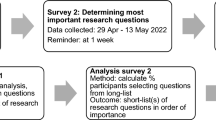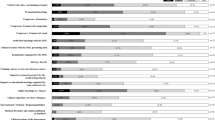Abstract
The role of the medical science liaison (MSL) within the industry is evolving yet well established. Reports of MSL activities have uniformly been from the view of the pharmaceutical company. This report describes the desired activities from the perspective of the health care professional (HCP) using a blinded, 2-phase survey method. The first phase was an online quantitative survey conducted among key opinion leaders (KOLs) in the academic and practicing fields for diabetes research and treatment who have met with an Amylin MSL in the past 6 months. The second phase consisted of 1-on-1 telephone interviews with a subset of participants from phase 1 to better understand what KOLs want and need from MSLs, to explore how MSLs can add value to their interaction with KOLs, and to understand how Amylin MSLs are performing. The research evaluated a number of questions, including how KOLs view the MSLs and the value they bring to the KOLs. There were 116 KOLs who completed the online survey and who were considered qualified completers. Diabetes MSLs are a valuable resource to KOLs. They must first and foremost present themselves as ethical and unbiased. They help KOLs stay up to date on industry information and happenings, saving time for the busy KOL. The KOL’s key information needs are around pipeline and research. They would like to get to know their MSLs better, to understand their background and experience, and to see them more often.
Similar content being viewed by others
References
Morgan DK, Domann DE, Collins GE, et al. History and evolution of field-based medical programs. Drug Inf J. 2000;34:1049–1052.
Cram DL, Chandler M, Chin J. Medical science liaisons of the future: a position against overspecialization. Med Sci Liaison Q. 2006;4(2).
Marrone CM, Bass JL, Klinger CK. Survey of medical liaison practices across the pharmaceutical industry. Drug Inf J. 2007;41:457–470.
Marrone CM, Bass JL, Klinger CK. Survey of medical liaison practices 2: assessing training techniques and demonstrating value of medical liaisons. Drug Inf J. 2008;42:67–80.
Bass JL, Marrone CM, Klinger C. Survey of medical liaison practices 3: assessing practice trends across the pharmaceutical industry. Drug Inf J. 2010;44:535–549.
Klinger CK, Marrone CM, Bass JL. Medical liaison survey 4: assessing tools used by medical liaisons, clinical trial involvement, and career strategies. Drug Inf J. 2010;44:551–567.
Author information
Authors and Affiliations
Corresponding author
Additional information
Portions of these data were presented at the DIA Medical Communications Workshop, Orlando, Florida, March 2012.
Rights and permissions
About this article
Cite this article
Moss, R.J., Black, J. Health Care Professionals’ Expectations of the Medical Science Liaison: A Blinded Survey. Ther Innov Regul Sci 47, 203–208 (2013). https://doi.org/10.1177/2168479012470649
Received:
Accepted:
Published:
Issue Date:
DOI: https://doi.org/10.1177/2168479012470649




